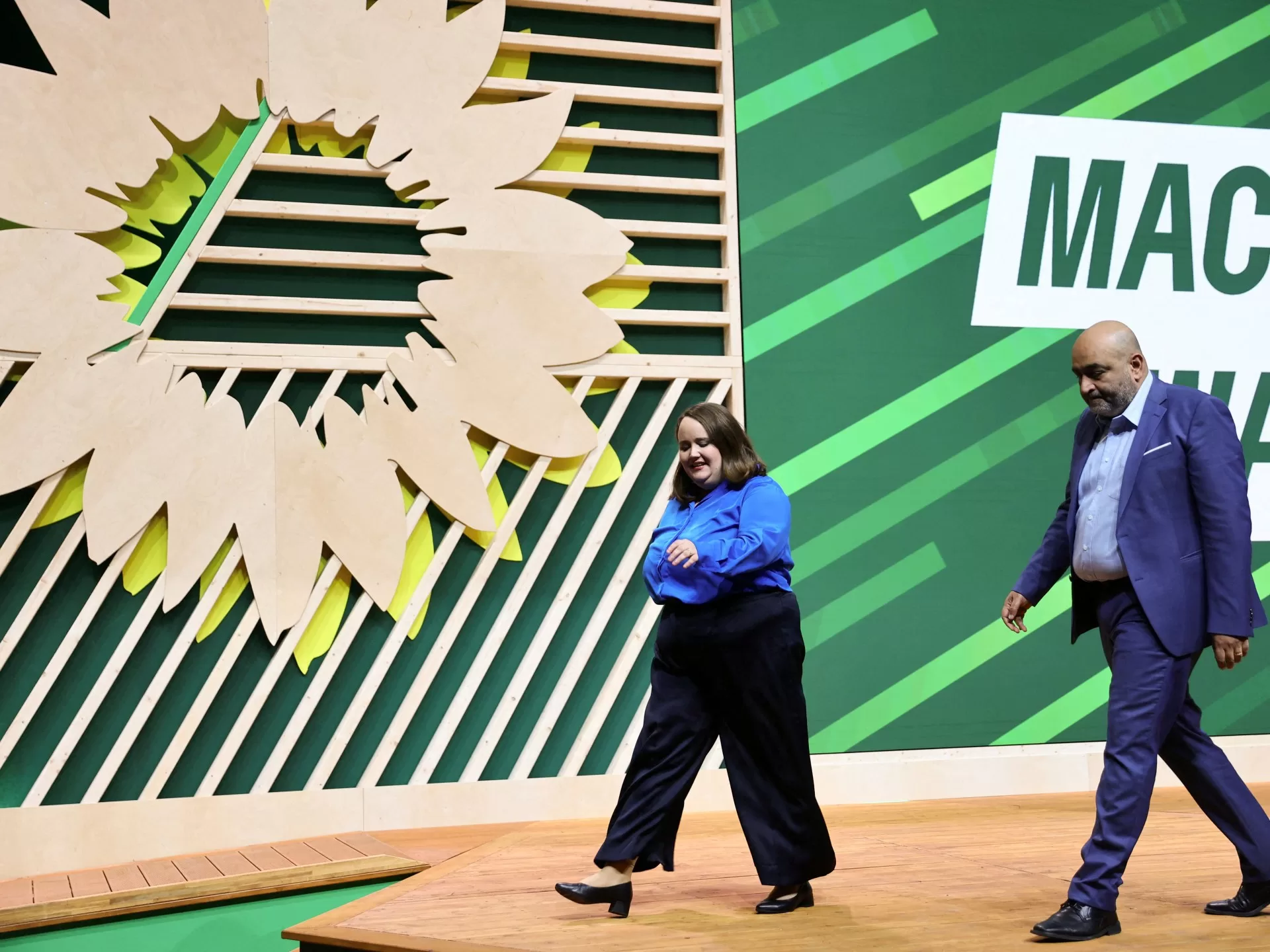Co-leaders’ exits come after the party failed to cross five percent threshold in Thuringia and Brandenburg state polls.
The co-leaders of Germany’s Greens party, which is part of Chancellor Olaf Scholz’s ruling coalition, have said they would quit after a series of election blows that saw their party ejected from two regional parliaments.
The decision made by Omid Nouripour and Ricarda Lang on Wednesday comes at a time of turbulence for the coalition, buffeted by voter angst over the economic challenges facing Germany and by fierce debates over migration as a national election looms next year.
“The result in Brandenburg [in the regional election] on Sunday is a sign our party is in its deepest crisis of a decade,” Nouripour told a news conference. “It is time to lay our beloved party’s fate in others’ hands.”
In Thuringia and Brandenburg states, the Greens failed to cross the five percent threshold needed to enter parliament, and in Saxony, they just scraped in.
Co-leader Lang said the party “needs new faces to lead it out of this crisis” and oversee a “strategic reorientation” before the national poll.
Lang and Nouripour will remain in place until successors are elected at a party conference in mid-November.
The Greens emerged out of Germany’s environmental, peace and anti-nuclear protest movements of the 1970s, and participated in previous Social Democratic Party (SPD)-led national governments between 1998 and 2005.
While the Green party leadership’s move has no direct impact on the German government or on Greens ministers serving in it – including Scholz’s deputy Robert Habeck and Foreign Minister Annalena Baerbock – analysts said it could stoke greater political instability.
Habeck said he shared responsibility for the poor election results and called for an open debate on the Greens’ future at their party congress in mid-November.
“The Greens will reorder their ranks to start the catch-up ahead of the elections with new force,” he added.
Meanwhile, the parliamentary leader of Scholz’s centre-left SPD, Katja Mast, said she believed the Greens would want to stay in the governing coalition.
The Greens need to adapt to a dramatically changed political climate, outgoing co-leader Lang said at Wednesday’s news conference.
“Next year’s election is not just any election,” she said. “[It will be a choice between] a country focused on achieving prosperity by sticking to climate neutrality or a country run by people who want to back away from all that.”
